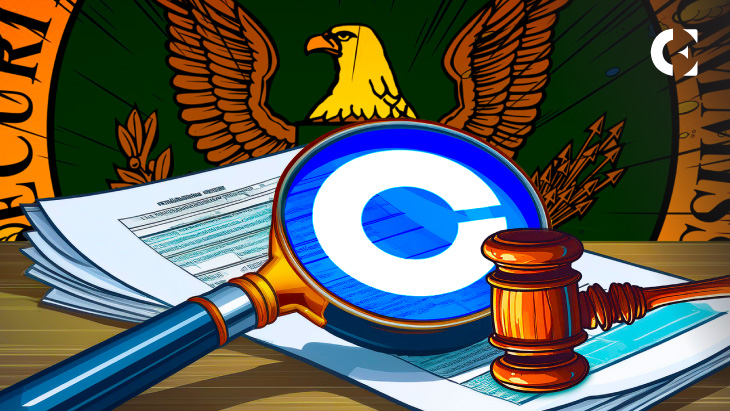- Coinbase and others must fight in court for clarity on SEC’s regulatory actions.
- Congressional inaction fuels secrecy, alienating stakeholders in the crypto industry.
- FOIA requests highlight the SEC’s lack of transparency and accountability to the public.
Private litigants, such as Coinbase, find themselves in the unusual position of having to go to court to get clarity on the U.S. Securities and Exchange Commission’s (SEC) actions and decisions. According to MetaLawMan, a crypto lawyer, this struggle shows a major gap in regulatory oversight.
Despite the considerable funds allocated to Congress for oversight, the absence of proactive measures to address the SEC’s conduct is striking. This situation raises serious questions about the effectiveness of regulatory bodies and their accountability to the public.
Congressional Inaction and Its Implications
The lack of oversight from Congress regarding the SEC is especially troubling. Citizens expect their elected representatives to ensure that regulatory bodies operate transparently and responsibly.
However, Congress appears largely inactive in addressing the growing concerns surrounding the SEC’s actions. This inaction contributes to a culture of secrecy and confusion, and stakeholders in the cryptocurrency space feel increasingly alienated from the regulatory process.
Moreover, the SEC’s opaque handling of requests for information worsens the situation. For example, attorney John E. Deaton and his team recently filed Freedom of Information Act (FOIA) requests to obtain documents related to Ethereum 2.0 and other key topics.
Read also: Coinbase Escalates SEC Battle, Demands CFTC Disclosures
They believe that this information belongs to the public, not just the SEC. However, the SEC’s response has been less than satisfactory. This prolonged delay in providing necessary information raises further questions about the SEC’s motives.
The Unfolding Legal Battle
After the SEC’s refusal to provide the requested information, Deaton and his team opted for legal action to compel the SEC to release the documents. This decision marks a crucial moment in the ongoing dialogue between regulatory authorities and the cryptocurrency industry. The legal challenge emphasizes the need for clarity in regulatory practices and transparency in communications.
However, the SEC has responded with a series of excuses for its delay, suggesting a lack of willingness to engage meaningfully with stakeholders. This constant shifting of the narrative from the SEC raises serious concerns. What is the SEC hiding? Why does it continue to avoid accountability?
Disclaimer: The information presented in this article is for informational and educational purposes only. The article does not constitute financial advice or advice of any kind. Coin Edition is not responsible for any losses incurred as a result of the utilization of content, products, or services mentioned. Readers are advised to exercise caution before taking any action related to the company.







